C Concurrency in Action:C 并发编程实战英文版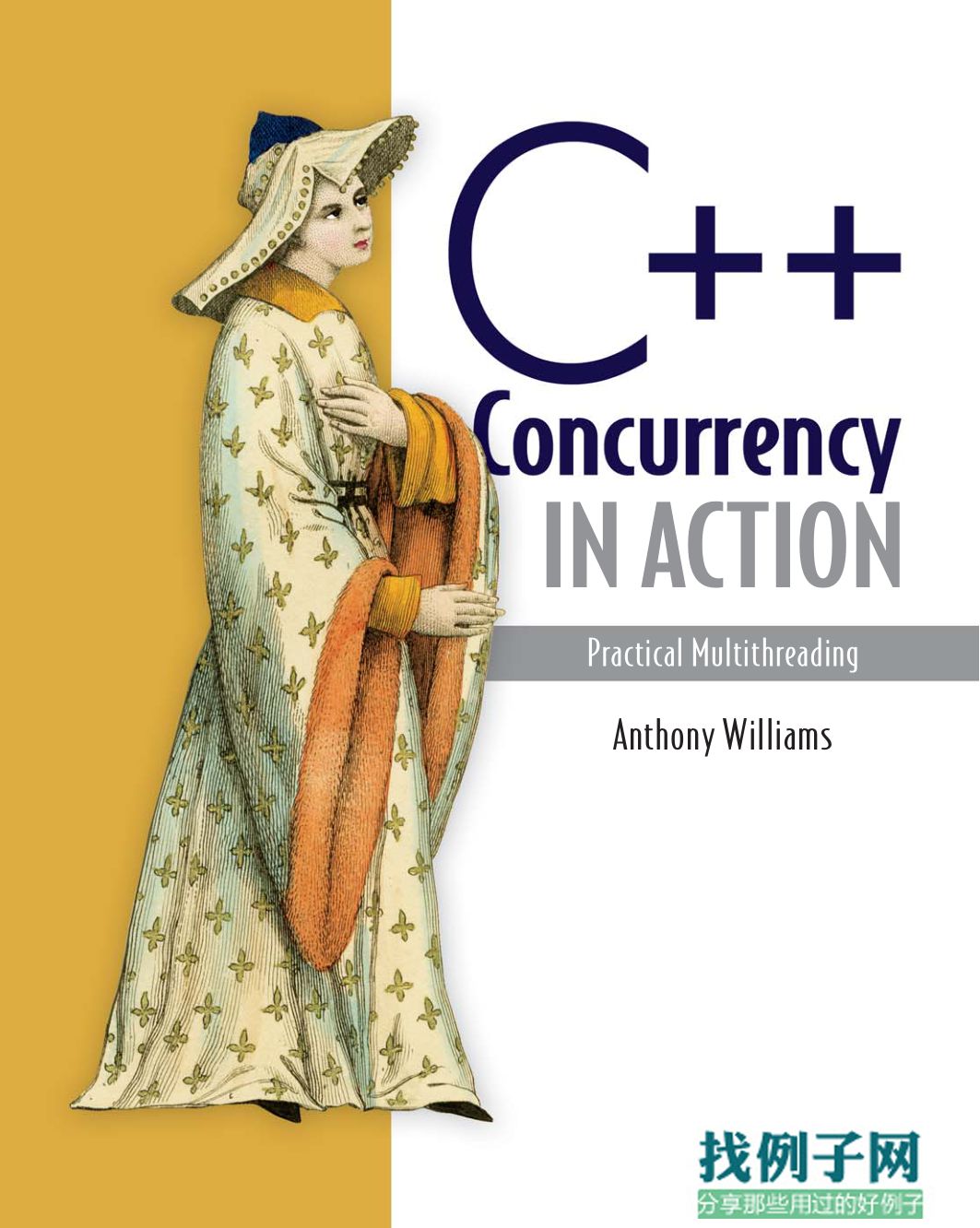
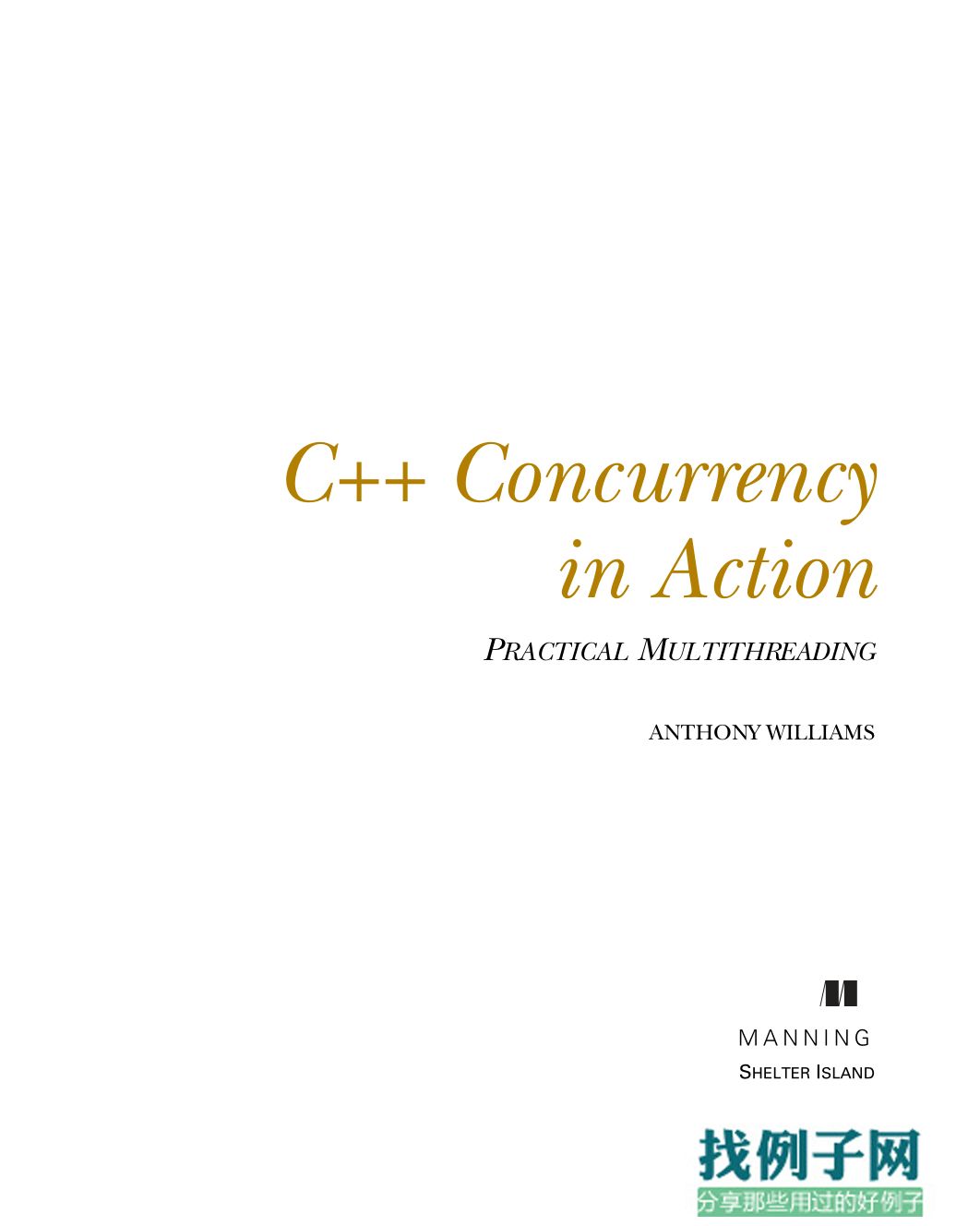
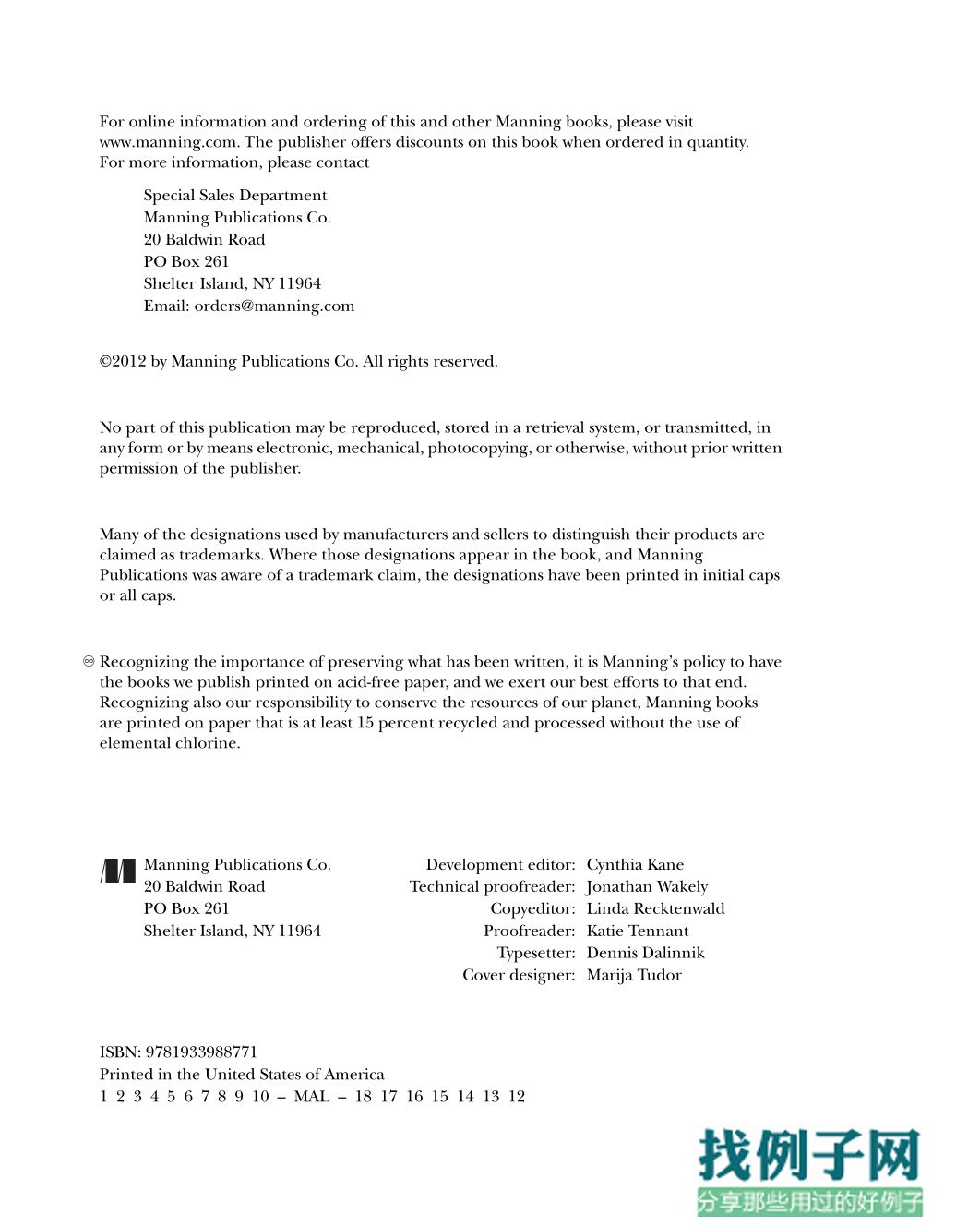

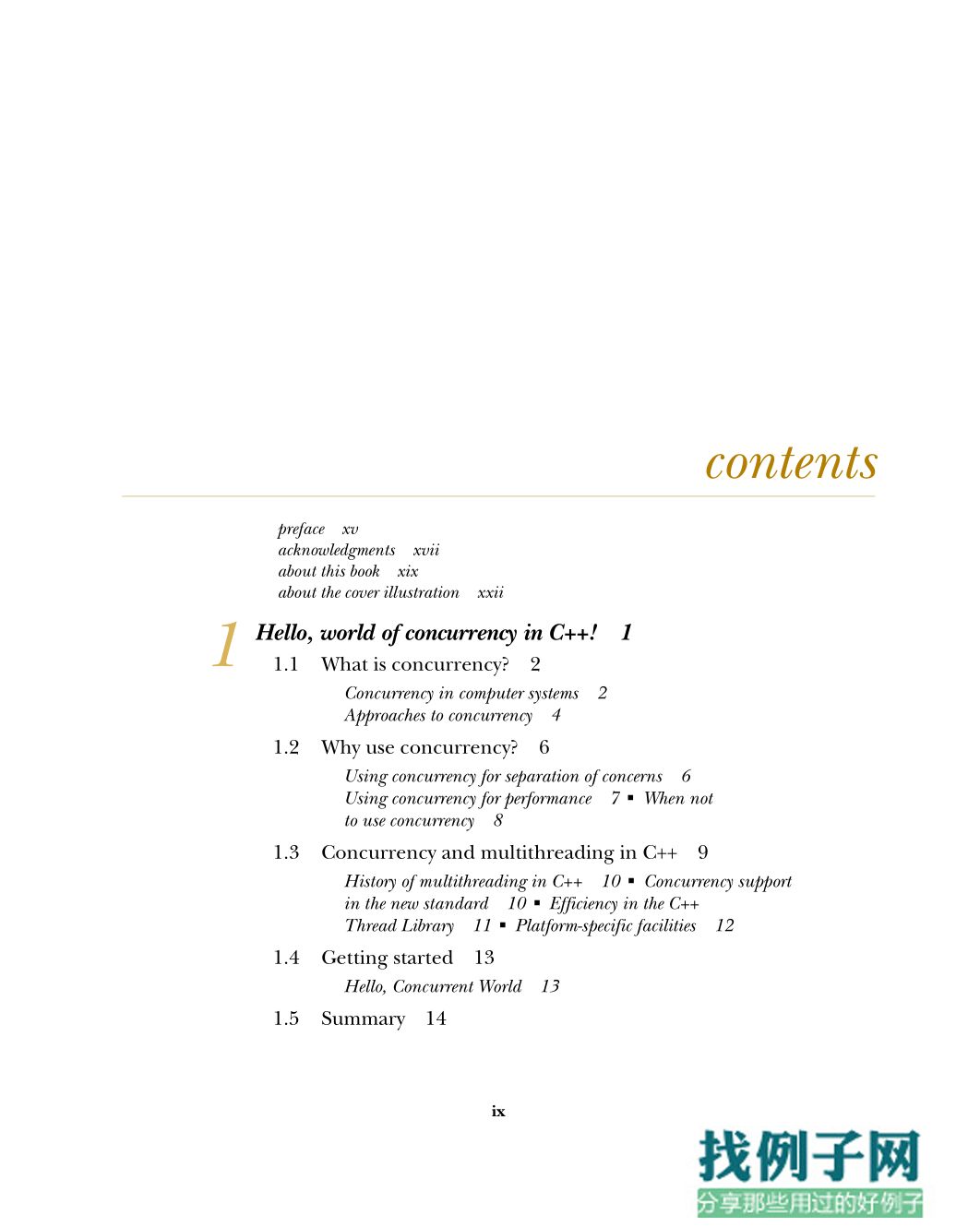
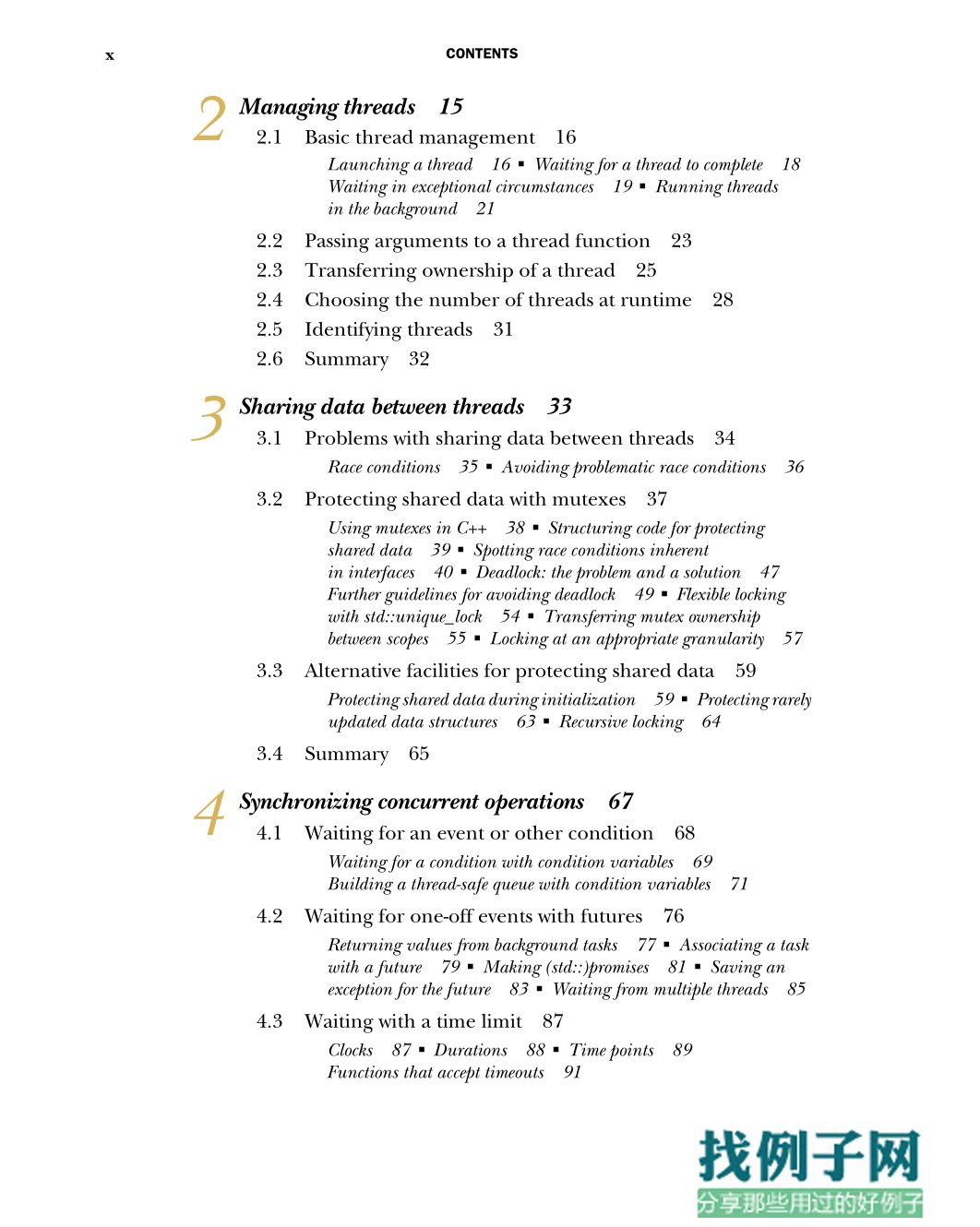
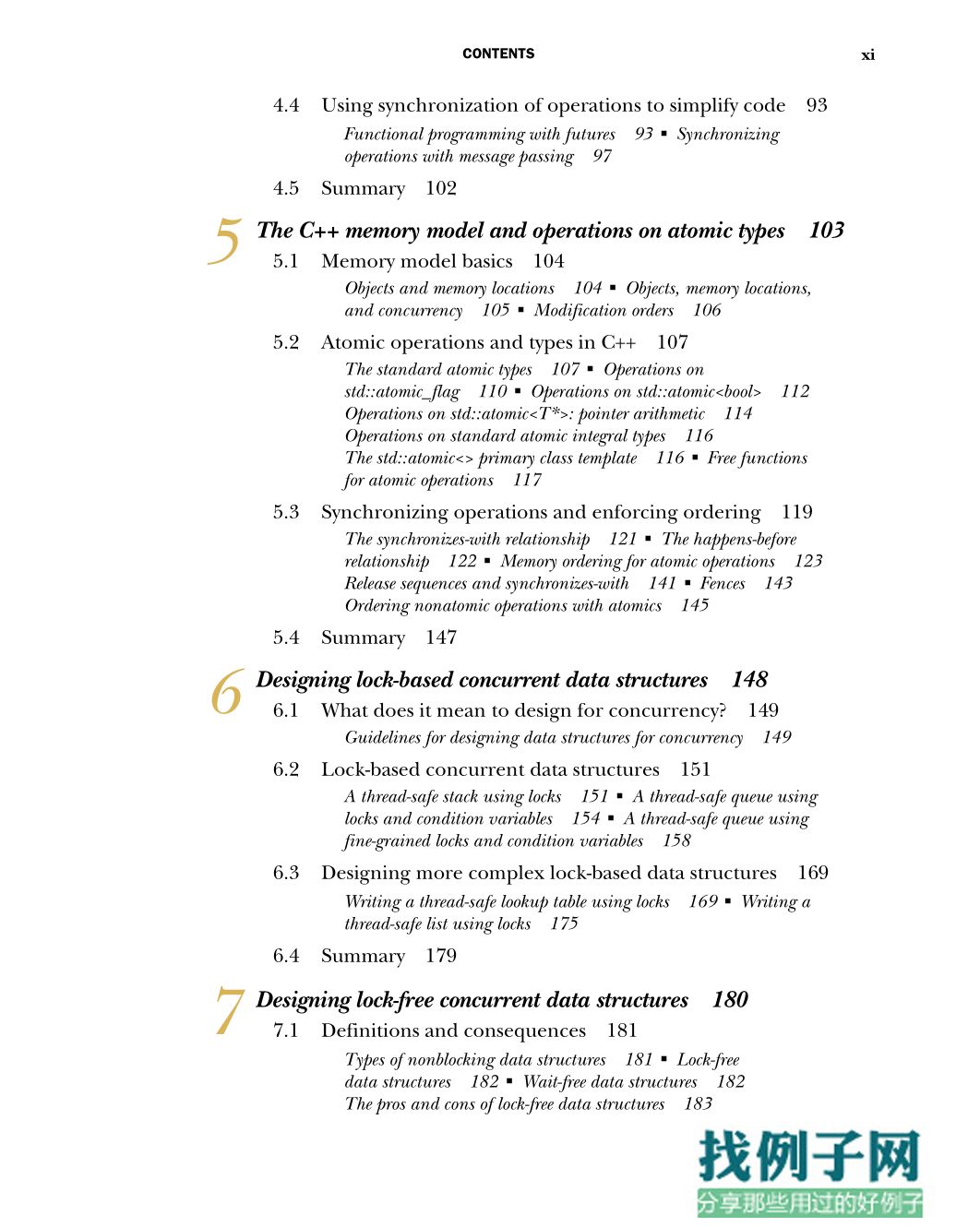
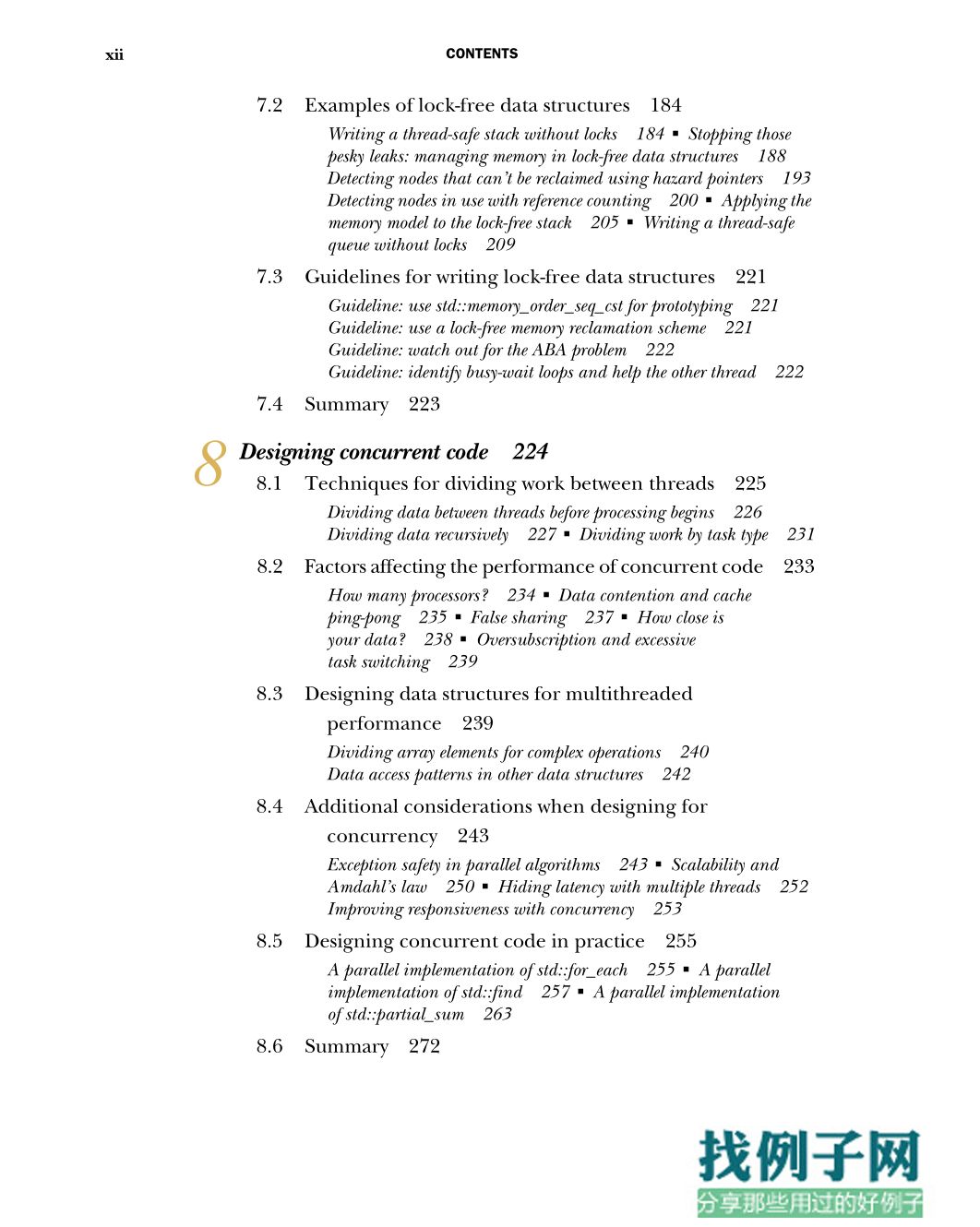
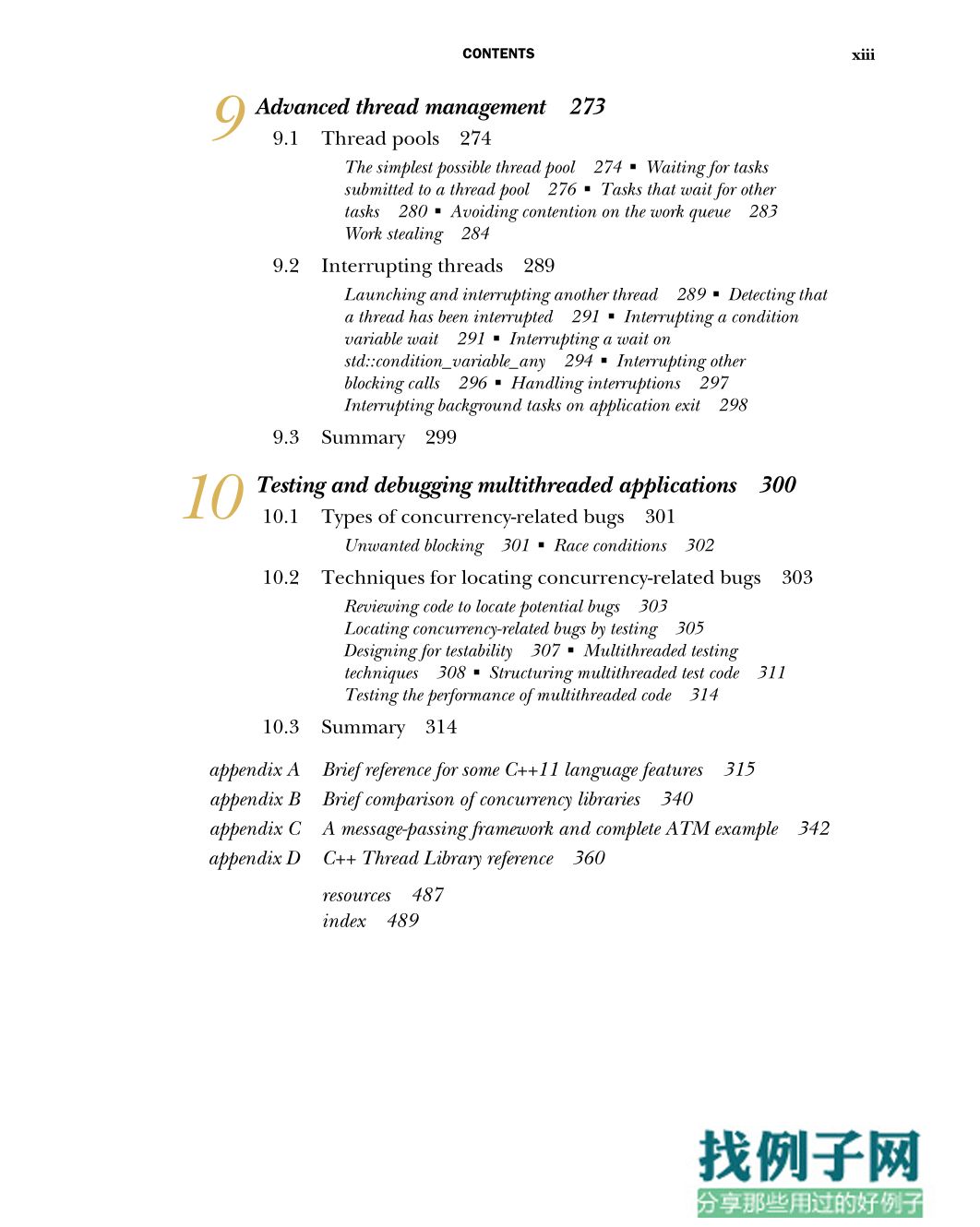
preface xv
acknowledgments xvii
about this book xix
about the cover illustration xxii
1
Hello, world of concurrency in C ! 1
1.1 What is concurrency? 2
Concurrency in computer systems 2
Approaches to concurrency 4
1.2 Why use concurrency? 6
Using concurrency for separation of concerns 6
Using concurrency for performance 7
■
When not
to use concurrency 8
1.3 Concurrency and multithreading in C 9
History of multithreading in C 10
■
Concurrency support
in the new standard 10
■
Efficiency in the C
Thread Library 11
■
Platform-specific facilities 12
1.4 Getting started 13
Hello, Concurrent World 13
1.5 Summary 14
CONTENTS x
2
Managing threads 15
2.1 Basic thread management 16
Launching a thread 16
■
Waiting for a thread to complete 18
Waiting in exceptional circumstances 19
■
Running threads
in the background 21
2.2 Passing arguments to a thread function 23
2.3 Transferring ownership of a thread 25
2.4 Choosing the number of threads at runtime 28
2.5 Identifying threads 31
2.6 Summary 32
3
Sharing data between threads 33
3.1 Problems with sharing data between threads 34
Race conditions 35
■
Avoiding problematic race conditions 36
3.2 Protecting shared data with mutexes 37
Using mutexes in C 38
■
Structuring code for protecting
shared data 39
■
Spotting race conditions inherent
in interfaces 40
■
Deadlock: the problem and a solution 47
Further guidelines for avoiding deadlock 49
■
Flexible locking
with std::unique_lock 54
■
Transferring mutex ownership
between scopes 55
■
Locking at an appropriate granularity 57
3.3 Alternative facilities for protecting shared data 59
Protecting shared data during initialization 59
■
Protecting rarely
updated data structures 63
■
Recursive locking 64
3.4 Summary 65
4
Synchronizing concurrent operations 67
4.1 Waiting for an event or other condition 68
Waiting for a condition with condition variables 69
Building a thread-safe queue with condition variables 71
4.2 Waiting for one-off events with futures 76
Returning values from background tasks 77
■
Associating a task
with a future 79
■
Making (std::)promises 81
■
Saving an
exception for the future 83
■
Waiting from multiple threads 85
4.3 Waiting with a time limit 87
Clocks 87
■
Durations 88
■
Time points 89
Functions that accept timeouts 91
CONTENTS xi
4.4 Using synchronization of operations to simplify code 93
Functional programming with futures 93
■
Synchronizing
operations with message passing 97
4.5 Summary 102
5
The C memory model and operations on atomic types 103
5.1 Memory model basics 104
Objects and memory locations 104
■
Objects, memory locations,
and concurrency 105
■
Modification orders 106
5.2 Atomic operations and types in C 107
The standard atomic types 107
■
Operations on
std::atomic_flag 110
■
Operations on std::atomic<bool> 112
Operations on std::atomic<T*>: pointer arithmetic 114
Operations on standard atomic integral types 116
The std::atomic<> primary class template 116
■
Free functions
for atomic operations 117
5.3 Synchronizing operations and enforcing ordering 119
The synchronizes-with relationship 121
■
The happens-before
relationship 122
■
Memory ordering for atomic operations 123
Release sequences and synchronizes-with 141
■
Fences 143
Ordering nonatomic operations with atomics 145
5.4 Summary 147
6
Designing lock-based concurrent data structures 148
6.1 What does it mean to design for concurrency? 149
Guidelines for designing data structures for concurrency 149
6.2 Lock-based concurrent data structures 151
A thread-safe stack using locks 151
■
A thread-safe queue using
locks and condition variables 154
■
A thread-safe queue using
fine-grained locks and condition variables 158
6.3 Designing more complex lock-based data structures 169
Writing a thread-safe lookup table using locks 169
■
Writing a
thread-safe list using locks 175
6.4 Summary 179
7
Designing lock-free concurrent data structures 180
7.1 Definitions and consequences 181
Types of nonblocking data structures 181
■
Lock-free
data structures 182
■
Wait-free data structures 182
The pros and cons of lock-free data structures 183
CONTENTS xii
7.2 Examples of lock-free data structures 184
Writing a thread-safe stack without locks 184
■
Stopping those
pesky leaks: managing memory in lock-free data structures 188
Detecting nodes that can’t be reclaimed using hazard pointers 193
Detecting nodes in use with reference counting 200
■
Applying the
memory model to the lock-free stack 205
■
Writing a thread-safe
queue without locks 209
7.3 Guidelines for writing lock-free data structures 221
Guideline: use std::memory_order_seq_cst for prototyping 221
Guideline: use a lock-free memory reclamation scheme 221
Guideline: watch out for the ABA problem 222
Guideline: identify busy-wait loops and help the other thread 222
7.4 Summary 223
8
Designing concurrent code 224
8.1 Techniques for dividing work between threads 225
Dividing data between threads before processing begins 226
Dividing data recursively 227
■
Dividing work by task type 231
8.2 Factors affecting the performance of concurrent code 233
How many processors? 234
■
Data contention and cache
ping-pong 235
■
False sharing 237
■
How close is
your data? 238
■
Oversubscription and excessive
task switching 239
8.3 Designing data structures for multithreaded
performance 239
Dividing array elements for complex operations 240
Data access patterns in other data structures 242
8.4 Additional considerations when designing for
concurrency 243
Exception safety in parallel algorithms 243
■
Scalability and
Amdahl’s law 250
■
Hiding latency with multiple threads 252
Improving responsiveness with concurrency 253
8.5 Designing concurrent code in practice 255
A parallel implementation of std::for_each 255
■
A parallel
implementation of std::find 257
■
A parallel implementation
of std::partial_sum 263
8.6 Summary 272
CONTENTS xiii
9
Advanced thread management 273
9.1 Thread pools 274
The simplest possible thread pool 274
■
Waiting for tasks
submitted to a thread pool 276
■
Tasks that wait for other
tasks 280
■
Avoiding contention on the work queue 283
Work stealing 284
9.2 Interrupting threads 289
Launching and interrupting another thread 289
■
Detecting that
a thread has been interrupted 291
■
Interrupting a condition
variable wait 291
■
Interrupting a wait on
std::condition_variable_any 294
■
Interrupting other
blocking calls 296
■
Handling interruptions 297
Interrupting background tasks on application exit 298
9.3 Summary 299
10
Testing and debugging multithreaded applications 300
10.1 Types of concurrency-related bugs 301
Unwanted blocking 301
■
Race conditions 302
10.2 Techniques for locating concurrency-related bugs 303
Reviewing code to locate potential bugs 303
Locating concurrency-related bugs by testing 305
Designing for testability 307
■
Multithreaded testing
techniques 308
■
Structuring multithreaded test code 311
Testing the performance of multithreaded code 314
10.3 Summary 314
appendix A Brief reference for some C 11 language features 315
appendix B Brief comparison of concurrency libraries 340
appendix C A message-passing framework and complete ATM example 342
appendix D C Thread Library reference 360
resources 487
index 489



评论